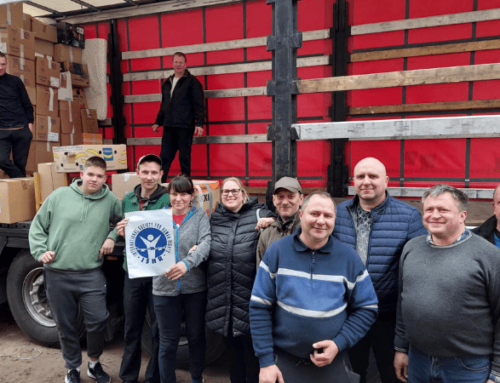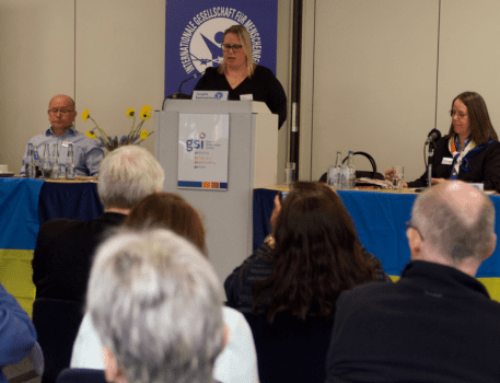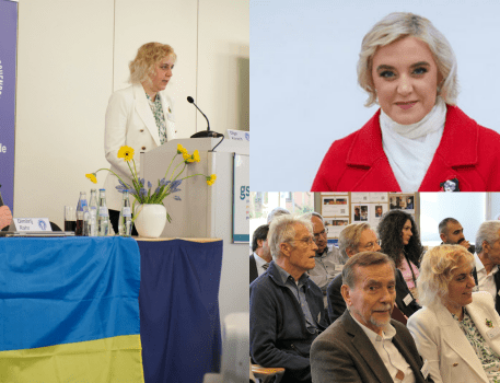Regional event in the city of Tiraspol in the framework of the project: “From humanrights-online.org to the regions and to the future”
Our one-day seminar took place in the city of Tiraspol on 22.08.2018. Tiraspol is the capital of the unrecognized Pridnestrovian Moldavian Republic (Transnistria), which, according to international law, belongs to the territory of the Republic of Moldova, but is not de facto controlled by the Moldovan authorities. Students, lawyers, and NGOs from Transnistria and Moldova participated in the seminar.

Tiraspol Center. Near the monument to A. Suvorov.
The seminar participants spoke of massive violations of human rights in the region and of people being intimidated because the authorities are arbitrarily arresting people and it is impossible to receive a fair trial. An independent judiciary cannot even be dreamt of, since corruption in the judiciary is the rule. It is known that judges extort bribes for acquittals or to shorten sentences. To reduce a prison term by 10 years, one would have to pay a bribe of $10-15,000. In Tiraspol, they beat and torture people in prisons. Prisoners and convicts live in terrible inhuman conditions, and their relatives are blackmailed by prison guards.
It is very difficult to change the situation of these massive human rights violations in the region because it is not possible to investigate specific cases, as both international organizations and Moldovan NGOs have limited access to this region.
According to local NGO representatives, no human rights organization in the region has investigated serious human rights violations as they fear reprisals and persecution by the Transnistrian authorities.
The Transnistrian authorities continue to monitor and restrict the activities of human rights NGOs. All activities of non-governmental organizations must be coordinated with local authorities. Public associations that do not meet these requirements will be prosecuted. Leaders of organizations and activists are threatened by security officials.
Organizations committed to reunification with the Republic of Moldova are strictly prohibited. In Transnistria, the authorities have restricted the freedom of assembly.
The separatist authorities only grant citizens who recognize them as Transnistrian the right to form associations. The anti-terror regulation of 2015 restricted freedom of expression in Transnistria. The decree allowed prosecutors, the KGB, and Transnistria’s regional telecommunications department to shut down sites they consider to be suspicious; that is, to propagate “forbidden issues” such as extremism, terrorism, or appeals to overthrow the government. Former Transnistrian leader Y. Shevchuk gave the “KGB” of Transnistria the right to demand that the “Prosecutor’s Office” block certain Internet content. A decision to that effect should be taken on the basis of the findings of an examining board appointed by the KGB. However, the authorities also restrict access to Internet forums without justification. Previously, the head of Transnistria insisted that all social networks should be registered as mass media, allowing for monitoring and establishment of restrictions, if they are too critical of the government.
As stated by a participant of the seminar, members of NGOs now practice self-censorship and avoid controversial issues, fearing that government officials and other public figures could use laws against them to critically document their activities. Although the law guarantees freedom of speech and expression, these rights are not respected in practice. Citizens of Transnistria cannot publicly or privately criticize the authorities without fear of consequences. For example, a young man from Dnestrovsk was sentenced to three years in prison for “extremism” because he wrote notes in an old notebook that only UN troops in Transnistria could bring order.
The seminar participants, mostly young people, spoke bitterly about social problems and that they see no future in Transnistria. They will not be able to find decent work as production has declined due to the introduction of new business rules and the tightening of control by Ukraine and Moldova. The participants appreciated our work very much and expressed the wish to cooperate with the ISHR in the future.








Leave A Comment